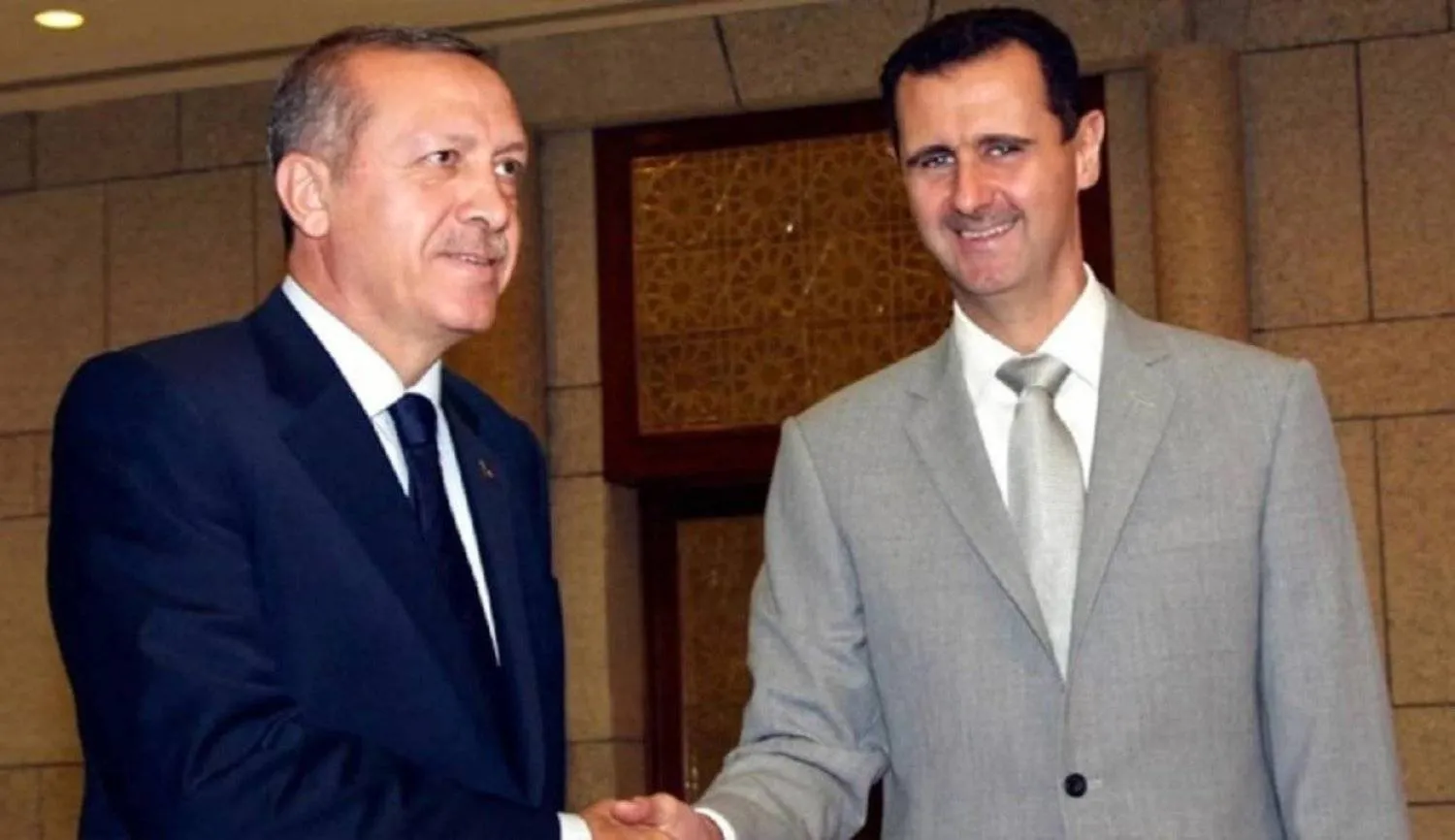Turkish sources said that Türkiye and Syria have been engaging in “back-channel diplomacy” to set the stage for a meeting between Turkish President Recep Tayyip Erdogan and his Syrian counterpart, Bashar al-Assad.
Despite the outstanding obstacles, which include the disagreement over the Turkish withdrawal from northern Syria, the sources confirmed that the meeting is the most important step to normalize relations, according to an article published in the Turkish Hurriyet newspaper.
The sources added that the date and location of the meeting are yet to be agreed upon, but communications are ongoing on the Ankara-Moscow-Damascus line.
In a television interview on Thursday, Turkish Defense Minister Yasar Guler said that Damascus setting conditions, such as military withdrawal from northern Syria, was tantamount to “a rejection of stability and peace.”
“We may hold ministerial-level meetings, and President Bashar al-Assad’s government must accept a comprehensive constitution and hold free elections, then Türkiye will be ready to work with whoever comes to power after the elections.”
Turkish Foreign Minister Hakan Fidan had previously pointed to talks with Syrian officials over the place and date of the meeting between Erdogan and Assad, indicating that it may be held in a third country if the two sides agree.
Fidan noted that Damascus is ready to hold a meeting without any preconditions, saying: “What I’ve seen in my communications with the other party is that they are open to negotiation. There are no preconditions that have been communicated to us so far.”
Writer Abdul Qadirselvi said in his article in Hurriyet on Friday that with the danger of the Gaza war expanding to other areas of the region, the normalization of Turkish-Syrian relations has become important.
He added that any crisis in the Israeli-Lebanese-Iranian triangle will affect the two countries more than others.
“If the American-Israeli plan succeeds in transferring the war to Lebanon, alarm bells will ring for Syria, and such a dangerous development will also deeply affect Türkiye,” he stated.
Qadirselvi pointed to recent statements made by the former advisor to the US Department of Defense, Douglas MacGregor, regarding US preparations to attack Türkiye, by supplying the Kurdistan Workers Party - People’s Protection Units (YPG) with weapons and air defense systems.
The Turkish writer argued that had it not been for Ankara’s pressure, elections would have been held in northeastern Syria, in the areas controlled by the Syrian Democratic Forces (SDF), and an independent administration would have been established.









